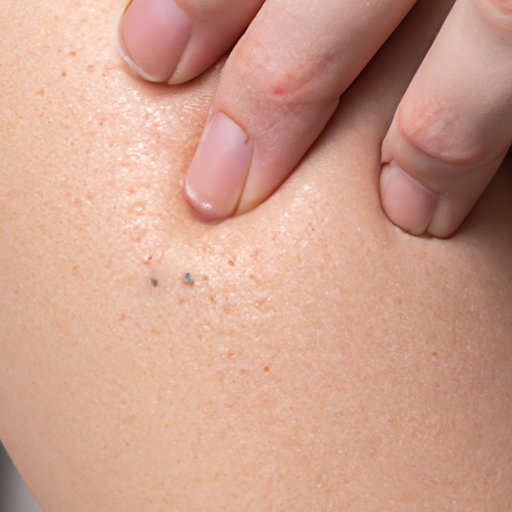
How to Get Rid of Ingrown Hair Bumps Naturally
Ingrown hair bumps are one of the most common skin problems that people face. They can be uncomfortable, unsightly, and sometimes even painful. Fortunately, there are many remedies available, ranging from natural to chemical treatments. In this article, we will explore some effective ways to get rid of ingrown hair bumps.
What are Ingrown Hair Bumps?
Ingrown hair bumps, also known as razor bumps, are a common skin condition that occurs when hair grows back into the skin instead of up and out of the hair follicle. As a result, the skin becomes inflamed, red, and itchy.
There are several reasons why ingrown hair bumps may develop. Poor shaving or waxing techniques can cause hair to break underneath the skin instead of growing outwards. Additionally, certain skin types are more prone to developing ingrown hair bumps.
Preventing Ingrown Hair Bumps
Prevention is the first step in avoiding ingrown hair bumps. Start by exfoliating your skin gently, using a loofah or scrub brush, to remove dead skin cells. This will help to keep hair follicles from being clogged.
When shaving, use a sharp razor and make sure to shave in the direction of hair growth rather than against it. Shaving against the hair growth can cause hair to break off and become ingrown. Using shaving cream or gel can also help to lubricate the skin and prevent razor bumps from forming. Afterwards, apply a cooling, alcohol-free aftershave to soothe the skin.
Home Remedies and Treatments
There are various home remedies that can help to treat ingrown hair bumps. One effective remedy is to apply a few drops of tea tree oil to the affected area. Tea tree oil has antibacterial properties that help to reduce inflammation and prevent infection. Another option is to apply a paste made from aspirin and water to the affected area. Aspirin contains salicylic acid which helps to break down skin cells and reduce inflammation.
Other treatment options include exfoliation with a gentle scrub to help remove dead skin cells, and the application of over-the-counter topical creams that contain glycolic acid to help unclog pores and reduce inflammation.
Chemical Exfoliants for Ingrown Hair Bumps
Chemical exfoliants are another effective way to treat ingrown hair bumps. Glycolic acid is a popular ingredient in many chemical exfoliants. It works by helping to break down the bonds between dead skin cells, thereby reducing the possibility of hair becoming trapped in the follicle.
Some of the best products for treating ingrown hair bumps with chemical exfoliants include toners, serums, and masks that contain glycolic acid. These products can be found online or at your local skincare store.
Natural Remedies for Ingrown Hair Bumps
There are many natural remedies that can be used to treat ingrown hair bumps. Essential oils like lavender and peppermint are known for their anti-inflammatory and soothing properties. Simply add a few drops to a carrier oil such as coconut oil and massage into the affected area.
The use of a warm compress made from chamomile tea bags can also help to reduce inflammation and soothe the skin. Similarly, a mixture of turmeric and yogurt can help to reduce inflammation and brighten the skin tone.
Consulting with a Dermatologist or Skincare Expert
For severe or persistent cases of ingrown hair bumps, it may be necessary to consult with a skincare expert or dermatologist for further treatment options. This is especially important if there is an infection or if the bumps are particularly painful or itchy. It is important to find a skincare professional who has experience working with ingrown hair bumps.
Conclusion
Ingrown hair bumps can be unsightly and uncomfortable, but there are many ways to get rid of them. Using the tips and solutions outlined in this article, you can effectively prevent and treat ingrown hair bumps naturally. Remember to exfoliate, maintain proper shaving techniques, and consult with a skincare expert if the bumps persist.




